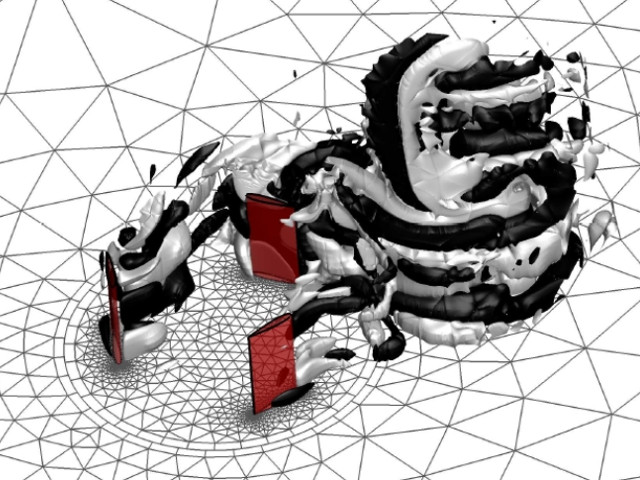Authors
F. Fraysse, G.Rubio, J. de Vicente, E. Valero
Journal Paper
http://doi.org/10.1016/j.ast.2014.07.017
Publisher URL
https://www.sciencedirect.com/
Publication date
October 2014
Improving the balance between cost and accuracy of computational fluid dynamics solvers by local mesh adaptation has become a topic of increasing interest. Numerical error based adaptation sensors proved to be robust and converge faster than sensors simply based on features of the flow field. However, this family of sensors known as residual-based sensors usually suffer from a high computational cost, e.g. the adjoint or Richardson extrapolation and are a posteriori indicators, which thus implies an initial solution to the problem. In this paper, we develop a mesh adaptation indicator accurate in the early stages of the iteration procedure, based on the τ-estimation technique. τ-estimation allows for an accurate truncation error estimation and can therefore be used to correct the discretized equations through the so-called τ-extrapolation methodology. We introduce the τ-estimation technique for non-converged solutions and derive all the necessary conditions to be used in the context of mesh adaptation and extrapolation of practical problems. Then, we apply this methodology to two-dimensional test cases, Euler flow past a NACA0012 airfoil in different Mach regimes, with a special focus on computational time. We demonstrate that quasi-a priori τ-estimation can substantially reduce the cost when combined with mesh adaptation or τ-extrapolation in comparison to classic adaptation sensors.



